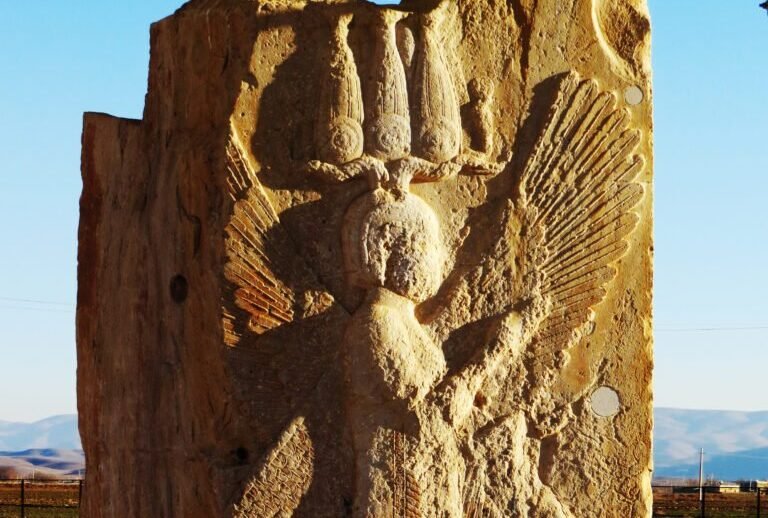Chronos, Kairos and Aion are the three deities of time, events and epic destinies. Here is the multi-religious and multicultural calendar!
Find us on our website Mythology and Legend, on Facebook and on instagram !

The schedule in brief from D-2 to D+5
- October 1, 2024, : Pchum Ben
- October 3, 2024, : Gaecheonjeol
- 6 October 2024, : Assembly Day
The complete interactive calendar
Holidays of the month
October 1, 2024 (1 event)
October 1, 2024

Today, Cambodians celebrate Pchum Ben, the Day of the Dead. This custom dates back to antiquity, when Cambodian converts to Brahmanism believed that after death, the Atman, the soul of each person, circulates through the cycle of the ocean of transmigration and is reincarnated as long as it is impregnated with unhealthy acts or defilement. #mythology #myth #legend #calendar #cambodia #PchumBen
October 3, 2024 (1 event)
October 3, 2024

Today, Koreans celebrate Founding Day, Gaecheonjeol. It corresponds to the date of the founding of the first Korean state Gojoseon in 2333 BCE by Tangun. #mythology #myth #legend #calendar #3October #Gaecheonjeol #Corea
October 6, 2024 (1 event)
October 6, 2024

Today, Yazidis celebrate Assembly Day, Cêjna Cemaiya which includes an annual pilgrimage to the tomb of Sheikh Adi in Iraq. #mythology #myth #legend #calendar #6October #yézidi #Yazidi
October 11, 2024 (1 event)
October 11, 2024

Today, countries within the Chinese sphere of influence celebrate the double nine, or double yang. People climb to a height to have a picnic, which is believed to recreate an action that once saved the lives of a group of people. There are several versions of the story, differing in the identities of the characters and the type of calamity averted. #mythology #myth #legend #calendar #doublenine #doubleyang #Chinia
October 15, 2024 (1 event)
October 15, 2024

Today, the Asatrus celebrate Vetrnætr, literally on winter nights. According to Zoega, vetr-nætr referred to the three days that begin the winter season. Sacrifices were organized on this occasion. #mythology #myth #legend #calendar #October 15 #winternight #asatru
October 29, 2024 (1 event)
October 29, 2024

Today, Iranians commemorate Cyrus the Great. This holiday originated in early 2000 via the Internet. According to some historical documents, October 29 was the day Cyrus entered Babylon after the fall of the Neo-Babylonian Empire to the Achaemenid Persians at the Battle of Opis. #mythology #myth #legend #calendar #29October #iran #CyrusTheGreat
October 31, 2024 (3 events)
October 31, 2024

Today, the North Slavic peoples celebrate Dziady. This communion of the living with the dead takes place twice a year. The rituals have been Christianized to become All Saints Day. #mythology #myth #legend #calendar #1st May #31October #dziady
October 31, 2024

Today, the Manx celebrate Hop-tu-naa. This variation of Samhaim (Halloween) has many rituals unique to the Isle of Man. #mythology #myth #legend #calendar #31October #hoptunaa #IledeMan
October 31, 2024

Today, the Asatrus celebrate Vetrnaetr (winter nights). These three days of celebrations with sacrifice and banquet mark the end of summer and the beginning of Scandinavian winter. It also marks the start of the new year. #mythology #myth #legend #calendar #vetrnaetr #October 31
Multicultural and multi-religious almanac
An almanac is a calendar showing the main dates of the calendar, the religious holidays, bearing ephemerides such as the phases of the moon or the duration of the days (lunar and solar calendars).
A calendar is a system for marking dates according to time. Such a system was invented by men to divide and organize time over long periods. The observation of the periodic phenomena of the environment in which they lived — such as the daily movement of the shadow, the return of the seasons or the lunar cycle — served as the first references for organizing the agricultural, social and religious life of societies.
The calendar used today in most of the world is the Gregorian calendar. In everyday language, an ephemeris designates what happens daily; the ephemeris of the day is the list of the significant events of this day.